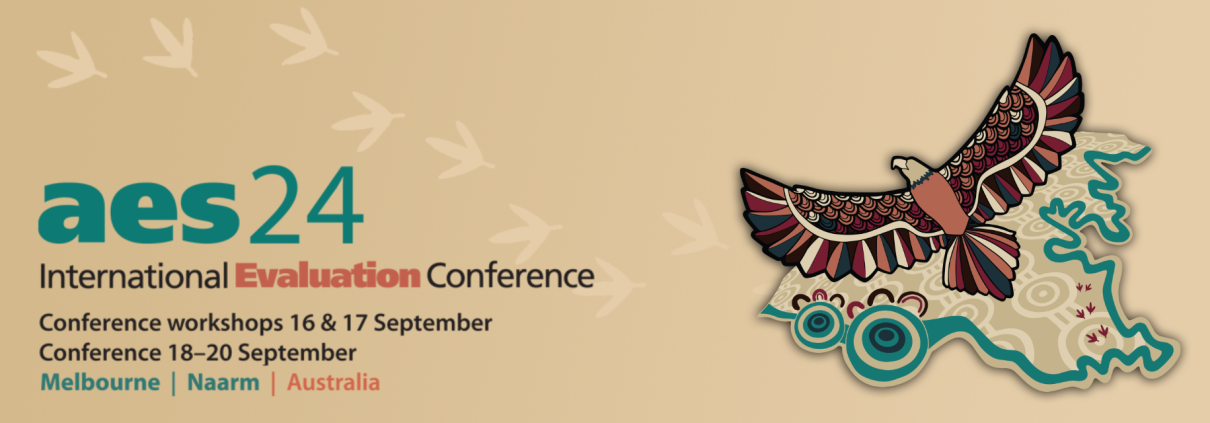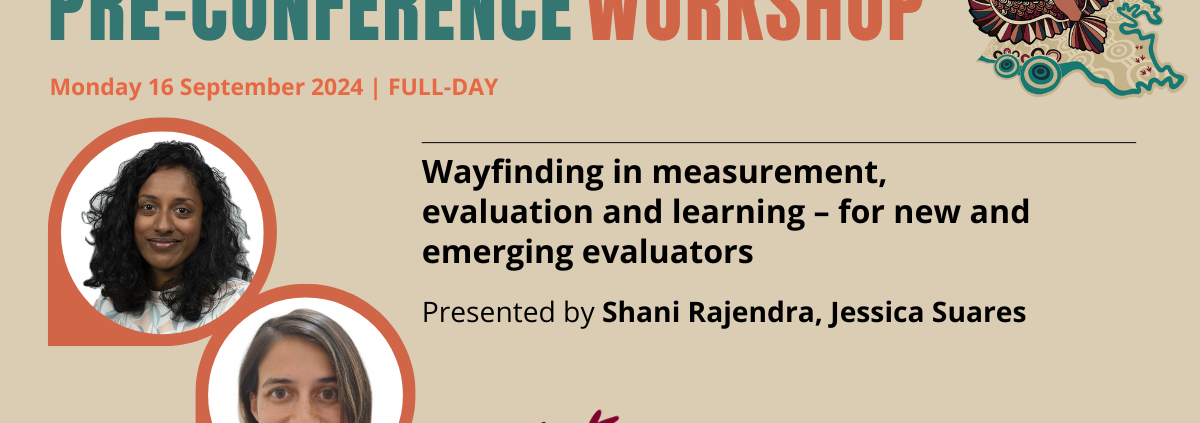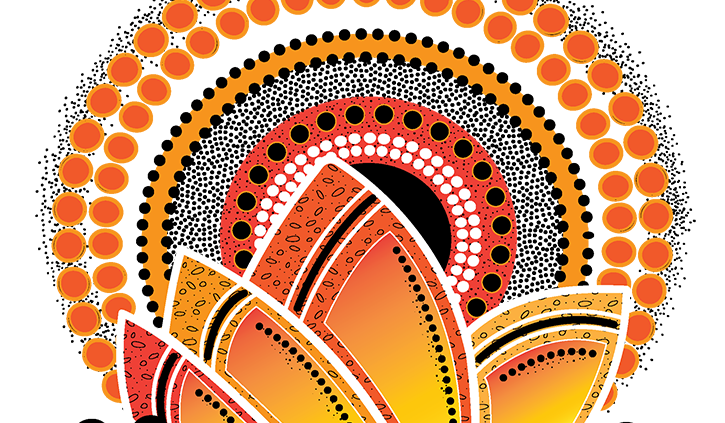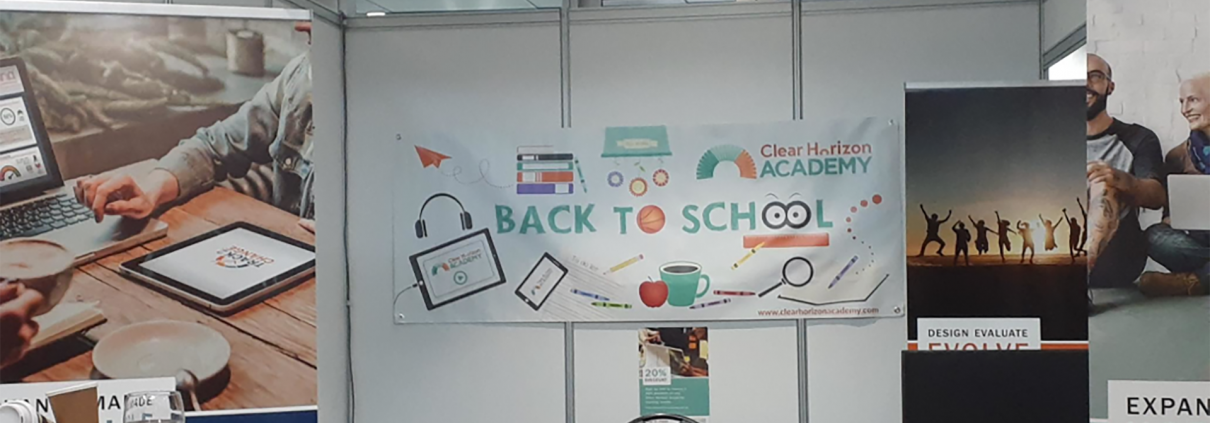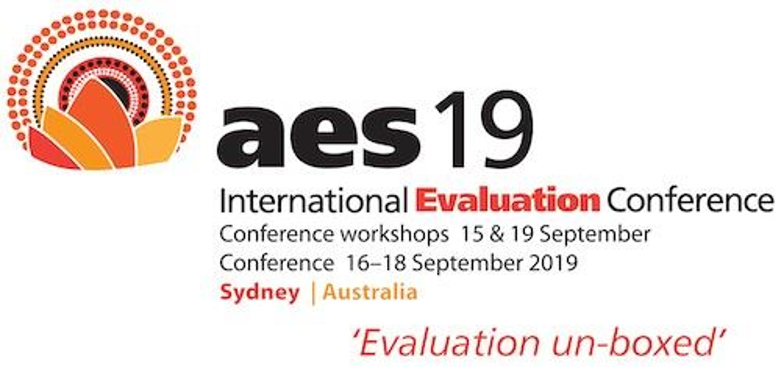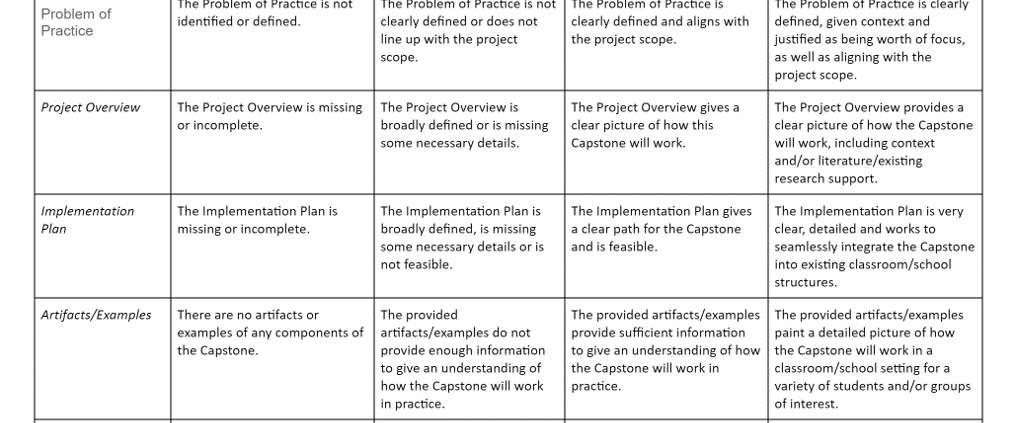Dr Tracey Westerman, proud Aboriginal woman, had me totally gripped throughout her keynote presentation on Day 1 at the AES International Evaluation Conference. She began with the statistic that Australia has the highest rate of child suicide in the word. But she cautioned us to be optimistic and focus also on the positive outcomes that are occurring, such as the six young Aboriginal people graduating from medicine in WA this year alone. She stressed that education is the most powerful solution in the world and described how in one generation her family ‘closed the gap’ – she gained a doctorate despite living very remotely, with a family background of very limited formal education.
She walked us through the importance of developing assessment tools that are culturally sensitive and to avoid confusing causes with risk factors. It seems many tools in existence today are culture-blind and can lead to stereotyping and actual discrimination. She has developed a whole range of specific assessment tools that are culturally sensitive, including an assessment tool for work-based culture. She made the case that there hasn’t been the right sort of research with Aboriginal people, that the causes are different, and need to be assessed in culturally sensitive ways.
She’s working on ‘building an army’ of Indigenous psychologists across the country to address child suicide and influence child protection. She ended with the note that there is nothing that can’t be achieved by Aboriginal people if they believe in themselves.
After this I had the privilege of moderating a panel about the client-consultant relationship, a topic dear to my heart and my business! The panel was from the Victorian Department of Education and training (DEET), as well as consultants from Melbourne Uni and Deloitte Access Economics. DEET have set up a ‘state of the art’ supplier panel with over 30 suppliers on it, and are working to deepen the partnership between evaluation suppliers and commissioners, as well as embedding a culture of evaluation. They were generous in sharing their challenges, including lots of tricky moments around data sharing and IP.
Just before lunch I had the pleasure of indulging in a session of evaluation theory led by Brad Astbury and Andrew Hawkins from (ARTD). The explored the seven great thinkers of evaluation, who laid the foundations of our seven-decade-long journey of building our theoretical foundations. So lovely to wallow in theory, I remember savouring that learning when studying for my PhD. Their conversation was framed around Foundations of Program Evaluation by Shadish, Cook and Leviton (1991) – it was my evaluation textbook back then and good to see it’s still valued!
It was a busy day for me, and I also convened a fun panel on digital disruption. We had a great spread of panellists, with a designer from Paper Giant, Ruben Stanton; a data scientist, Kristi Mansfield; a social procurement expert, Chris Newman; as well as our very own Chief Innovation Officer, Jenny Riley. We explored the trends, the opportunities and the scary stuff that might come with the fourth industrial revolution – yes, the robots are here! I saw a few people jump in their seats when Jen described how Survey Monkey stores data overseas and is not bound by the same data security regulations. We also looked into the amazing opportunities for evaluators to be the sensemakers of Big Data. When the firehose of data hits you in the face, maybe the evaluators will be there to bring you calmly back to the most important questions. We also explored the opportunities for evaluators to get involved in evaluating new technology and innovation, and to help consider how ready the system is to receive these innovations. I didn’t want it to end!
The day was topped off with a keynote from David Fetterman on empowerment evaluation. Empowerment evaluation is now 26 years old! David explained how empowerment evaluation is a self-evaluation approach designed to help people help themselves. It felt familiar!

